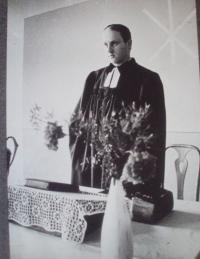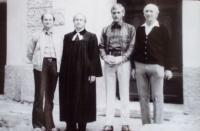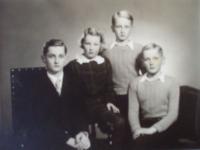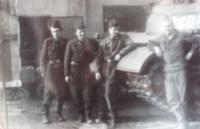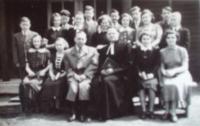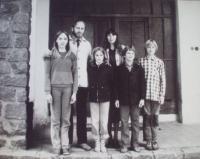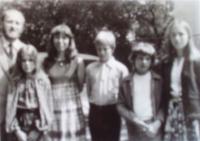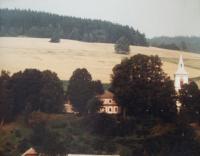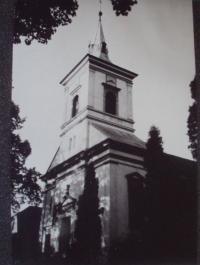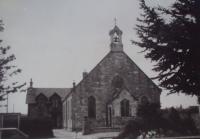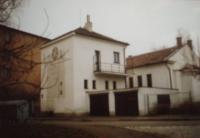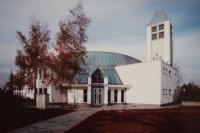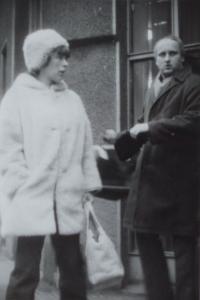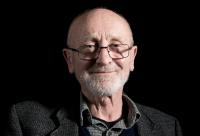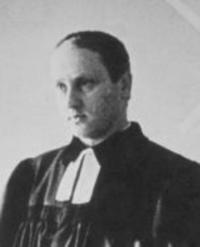We‘ll do you in with kid gloves, priest

Stáhnout obrázek
Tomáš Bísek was born on November 30, 1939, in Prague. He comes from a traditional Protestant family. He graduated from the Technical University in Prague and was admitted to the Kovosvit factory in Holoubkov. After working there for about a year he enrolled into the army. At that point in time he decided to initiate extramural studies of theology and, in 1963 he was admitted to intramural studies. Although he could have lived with his parents, he chose to move to the dormitories in Jircháře. During his studies, he was elected for one year as the prefect, i.e. a student leader. He met his future wife, Daniela, and for some time they lived together in the dorms in Jircháře. After graduation, they went for one year to the United States of America, where Mr. Bísek did his post-graduate studies. After his return in 1970 he started working as a priest in the parish of ČCE in Vysočina. He worked there until 1982 when he lost the state‘s approval for this occupation. Because of his connections abroad and contacts with friends from dissident circles he was under the surveillance of the secret police, who repeatedly interrogated him. The police kept a file on him code-named „Solitude“ and he was investigated in connection with the cases „Ideodiversion“, „Agro“ and „Pope“. In 1977, he and his wife signed Charter 77. In 1979, they found a bugging device in their home. After the loss of state approval he was not allowed to work as a priest; however, they could use the parish apartment in the vicarage in Telecí. He began to work as a lumberjack in a nearby sawmill. He had tried for several years to get a job in the Protestant church but, his efforts failed. Therefore he accepted the offer of employment in Scotland and in 1985, the family went to Great Britain. At first he was the assistant pastor at the church in Cumbernauld. Later he became a proper pastor of the Church of Scotland in Glasgow. During his stay in Britain he cooperated with the Czech section of the BBC. After 1989 he repeatedly visited Czechoslovakia, and he settled in the country permanently in 1996. In the years 1996-2007, he worked as a priest of the ČCE congregation in Prague Spořilov. During his service in Spořilov he initiated the construction of a new church in Prague 4, which subsequently became the new hub of the congregation. Currently he‘s retired and lives with his wife in Prague. Their four children live with their families in Scotland. In 2025 he was recognized by the Ministry of Defence as a participant of the 3rd Resistance.
